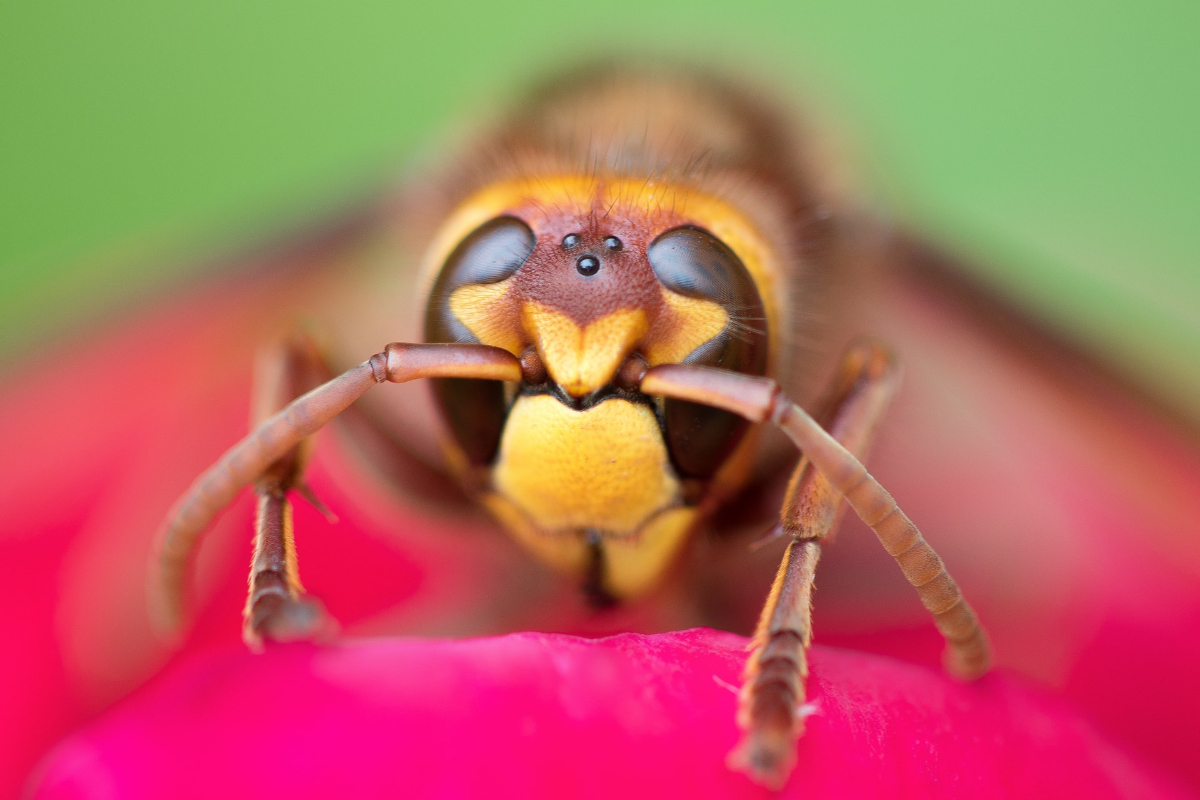Is it necessary to remove a wasp nest? We look at the reasons why you would want to have a wasp nest removed from your property.
Is Removing a Wasp Nest Necessary?
Whether you're relaxing in your garden at home in the Summer, or you're just about to open the outdoor seating area for your restaurant, cafe or pub, finding you have a colony of wasps living nearby can be a real pain.
The last thing you want is you or your customers being bothered, or worse, by some pesky wasps that just won't leave you alone.
The warmer months from late Spring and through the early Summer are the prime wasp season, bringing them out of their nests in droves.
Finding a wasp nest site can often be difficult, not to mention whether you need to remove the nest at all.
This article will take you through what needs to happen if you find you have a wasp infestation, with a few helpful tips to keep them at bay in the future.
What does a wasp nest look like?
The first thing to go over is what a wasp nest actually looks like as, without knowing this, you won't know what you're looking for in the first place.
Wasp nests are typically brown or grey in colour, resembling a round lump. They're usually spherical and can grow very large if left untreated. Wasps create their nests with chewed wood, which they turn into a paper-like substance, so their nests will have a similar, papery texture.
Despite their appearance, wasps nests are surprisingly waterproof, so don't think you can just turn the hose on them.
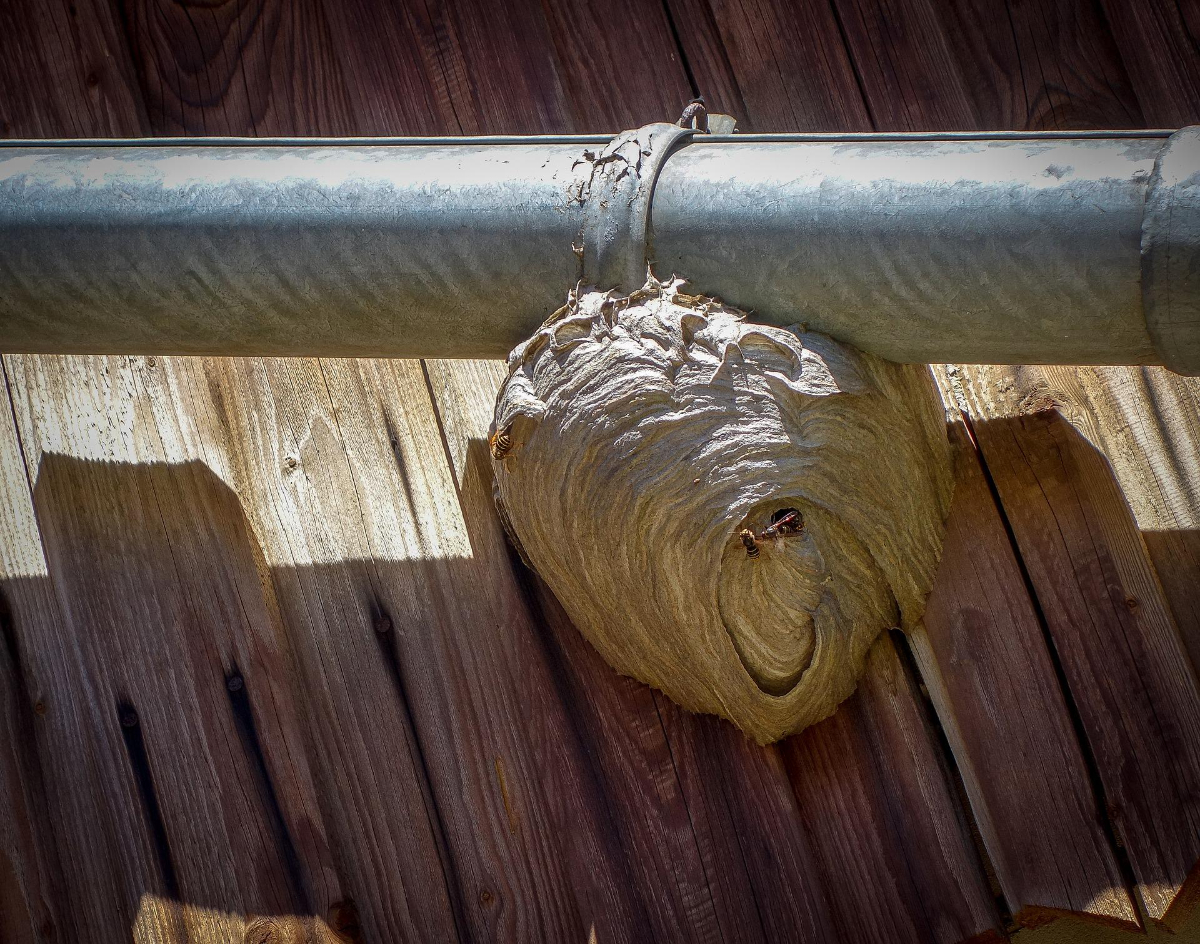
Again, wasp nests are notoriously tricky to track down if you don't know what you're doing. In most cases, wasps will create their nests in hidden recesses, crevices and other darkly hidden areas of your home or property or under the eaves of the building.
If you're completely at a loss with where to find the source of your wasp problem, it is often best to seek professional pest control services, such as ourselves.
Professional pest controllers have years of experience dealing with a wide variety of wasps and other insects and animals that infest people's homes and businesses, such as hornets, grubs or caterpillars.
Therefore, if you find you have a persistent wasp problem and don't think you can handle it yourself, it's best to rely on the expertise of pest controllers, who will have tracked and treated numerous nests throughout their careers.
Preventing wasps and their nests
When it comes to infestations, it's always best to take a preventative approach. This way, you can stop a wasp infestation before it has a chance to take route, driving you or your customers away from your outdoor areas.
Prevention is also far easier to implement than treating a wasp nest once it has formed, so here are a few things you can do to prevent wasps from invading your house or commercial property.
1.Windows and doors
Wasps can't form nests in your home or business if they can't get in to lay eggs.
Therefore, ensuring that all of your windows and doors are firmly secured in the early Spring will help to keep them outside.
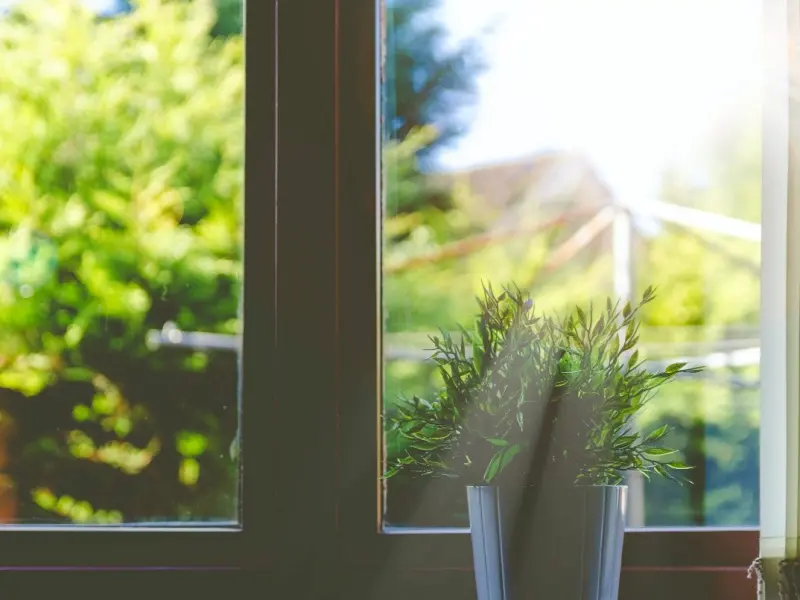
Of course, things can get a little stuffy once the weather warms up and you have all your windows and doors shut. A good alternative is to install fly screens, which can keep the wasps at bay while allowing your home or property to remain cool and get some fresh air.
2.Bin lids
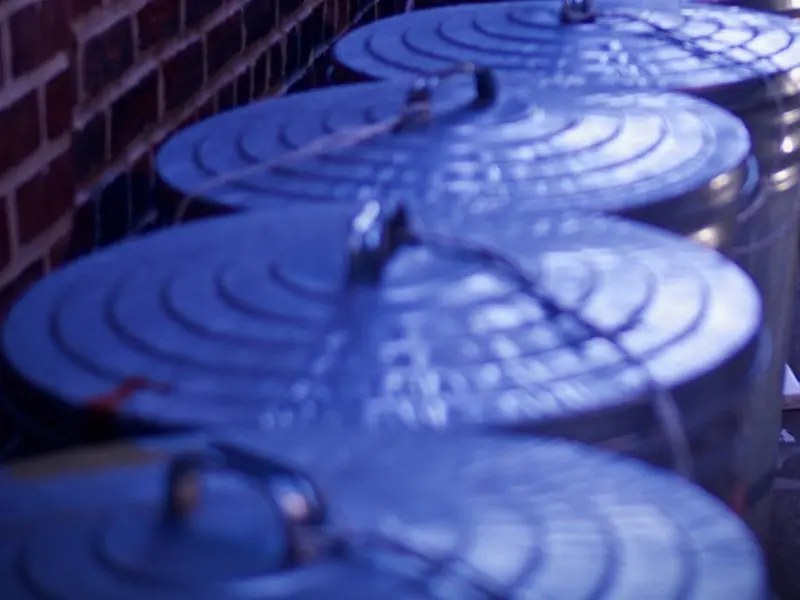
As you may remember from your school days or from visiting any local parks - wasps love bins.
This is because wasps have a particular fondness for rotten and fermented fruit, which they can often find in our bins.
This provides them with a quick meal of sweet sugar, which is all they ever want. The fermented fruit can also get our wasps a little drunk, making the worker wasps more aggressive and likely to attack.
To keep greedy wasps out of your bins, you can make sure that they are firmly closed, whether you have wheelie bins or big industrial ones.
You also might want to consider storing your bins away from the outdoor areas of your home or business to help keep the wasps that much further away.
3.Check early
Our third tip for taking the preventative approach to any wasp issues is to always check the parts of your home or business early for wasps' nests.
Catching a nest when it is being built during the Spring and is, therefore, smaller and easier to handle is always best. Wasp nests start out no bigger than a golf ball at that time of year.

You should check in all the usual places nests usually pop up, such as your loft, shed, garage and under the eaves of your building or nearby trees.
Getting rid of wasps and their nests
If a wasp nest is causing a serious disturbance or is threatening public health, professional pest controllers will be called in to deal with it. It is a serious job that can sometimes be dangerous, given that the wasps inside the nest will be threatened and come out to defend it.
The amount of wasps that usually occupy a nest means you could suffer multiple stings if you aren't careful, which can be fatal for those who have allergic reactions to wasp stings.
Unlike bees, wasps don't die after stinging you, meaning they can and will sting you as much as possible as they defend the nest and the queen wasps.
Due to the threat posed by removing a wasp nest, if it is far enough away from your property or in a location you don't visit very often, it can sometimes be best to leave the wasp nest alone.
Wasps typically abandon their nests once Winter arrives, and they will not return to the same one the following Spring as they look for a new queen.
DIY wasp nest removal
Of course, some think they can take down the wasp nest independently.
Standard insect killer sprays work fine for killing the odd wasp mid-flight, but this won't get you very far if you're tackling entire wasp colonies.
Additionally, there are countless online wasp nest treatments and DIY nest removal guides that people purport to be the solution, but nearly all of these are dangerous and are not recommended by professional pest control experts.
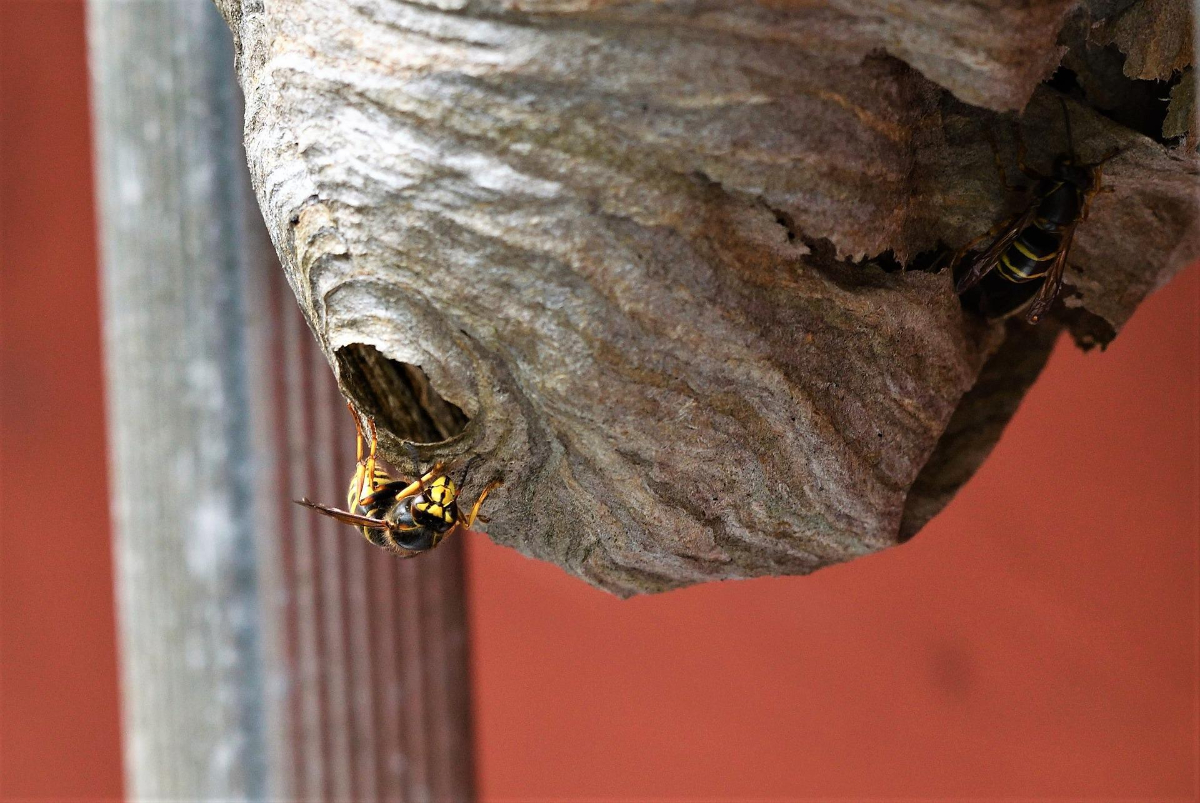
When wasps feel threatened, they will release a chemical hormone to call more worker wasps from their colony to help them. So, while armed with an ice pack, you may be able to handle a single wasp stinging you - despite how extremely painful it is - having tens or hundreds of them all attacking you is an incredible risk and can kill you.
Some DIY products are good at dealing with wasp nests in the early stages during the Spring when they are still small, but they won't work against a larger nest.
Therefore, it is always best to call a professional pest control service if you have a wasp nest problem.
Tackling it yourself is hazardous, and you should never attempt to remove a wasp nest if you think you may be allergic to wasp stings. Leave it to the professionals, and we will have your home or property free of wasps in no time.
Finding a pest controller to get rid of wasps
Removing a wasp nest might not be the best way to eliminate any wasps that are causing a nuisance for you.
Treating a wasp nest can often be the best way forward. Again, for your, your family's or your customers' protection, we advise you to contact a professional pest controller to treat any wasp nests you might have.
Pest control experts, such as ourselves, have the technical understanding and experience necessary to handle the eradication of a wasp nest safely. We also have access to professional quality insecticides and protective equipment that is not widely available to the public. Therefore, we are uniquely equipped to deal with a wasp infestation in a way that a DIY wasp removal attempt would not be.
The process of removing wasps from your home or property is fairly straightforward. Our professionally qualified pest controllers will apply the insecticide close to the entrance of the wasp nest.
By travelling in and out of the nest, the wasps will naturally transfer the insecticide into the nest, thoroughly eradicating the colony within a couple of days. This is the safest and most humane way of dealing with an infestation of wasps.
Even if you think the nest is unreachable, we have the tools necessary to carry out wasp removals safely at any height.
After the wasps have been removed, we can take the nest away also if you wish. Alternatively, you can always wait until the late Summer, Autumn or Winter, when the wasps will likely have abandoned the wasps' nest, and once you are sure the nest is free of live wasps, you can remove it yourself.
If the nest has been treated with pesticides previously, you should wear protective clothing and gloves when doing this.
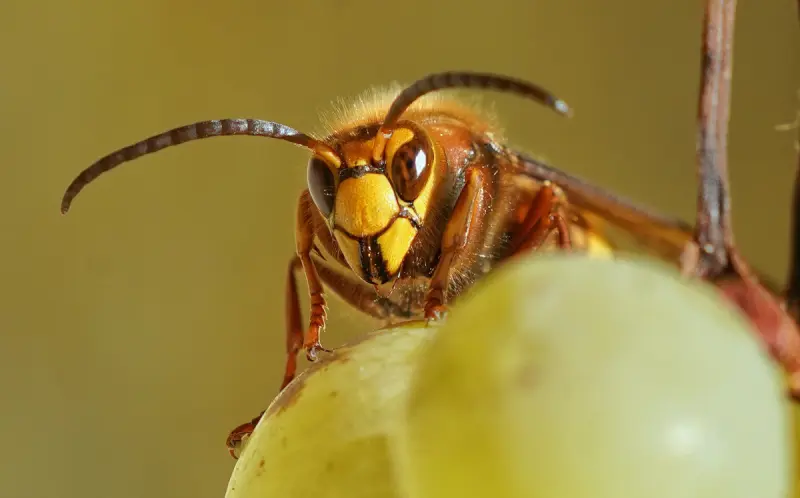
Are you looking for wasp nest pest control services in Portsmouth, Southampton, Basingstoke And Hampshire?
Pest Control Hampshire are pest control specialists working throughout Portsmouth, Southampton, Basingstoke And Hampshire. Contact us for pest control Portsmouth.
Follow the links below to find a pest control specialist to help resolve your pest infestation.

